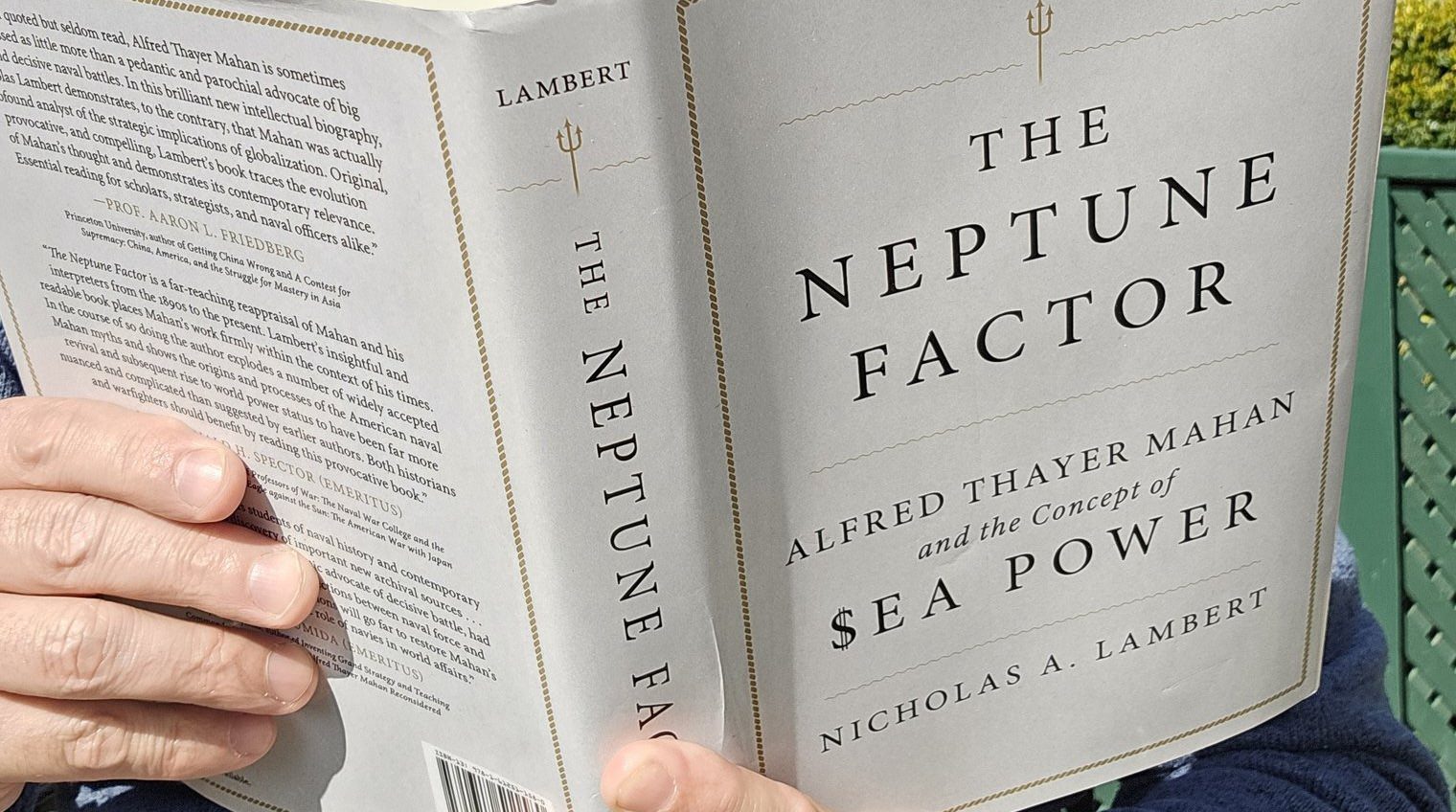The US Navy is Building a Drone Fleet to Take on China. It’s Not Going Well.
During a U.S. naval test off the California coast last month, which was designed to showcase the Pentagon’s top autonomous drone boats, one vessel stalled unexpectedly.

By John Konrad (gCaptain) Alfred Thayer Mahan’s importance and strength lie in his groundbreaking ideas on sea power and its crucial role in national security and power projection at sea. His seminal work, “The Influence of Sea Power upon History,” underscored the strategic importance of a formidable naval presence to deter potential adversaries. His insights profoundly shaped naval doctrines worldwide, highlighting the enduring relevance of naval supremacy in achieving and maintaining geopolitical stability and dominance. Or at least that was what I was taught at the Naval Academy in the mid-90’s. The truth is Mahan was not only a navalist but an economist who understood the vital importance of commercial shipping.
The post-Civil War era was a time of intellectual ferment and reform, from which Alfred Thayer Mahan emerged as a seminal figure in naval strategy. Mahan’s ideas shaped the Naval Institute, established in 1898, which has since been at the forefront of bridging the study of history with contemporary policy analysis. Today, as the Navy faces renewed debates about its future direction, the Naval Institute Press (NIP) has fittingly chosen to publish works that revisit and update Mahan’s strategic concepts for the modern era.
Dr. Nicholas Lambert’s new book, “The Neptune Factor,” is a brilliant addition to this intellectual tradition. It serves as a jumping-off point for scholars and mariners alike, urging them to expand Mahan’s strategy to address the volatile challenges of the twenty-first century. In today’s interconnected world, it is crucial to incorporate geoeconomic issues into our strategic planning. But that’s not all.
The book also highlights the need to integrate new concepts like cybersecurity, the use of space assets, and the deployment of underwater and surface maritime unmanned vehicles into our naval technology. The environmental threats that increasingly damage the oceans—pollution, illegal overfishing, global warming, melting ice, and plastics—must be addressed comprehensively. These challenges require a collective effort to craft a strategy that honors Mahan’s legacy while addressing contemporary realities.
Related book: 21st Century Mahan: Sound Military Conclusions for the Modern Era by Benjamin F. Armstrong
James Stavridis, former Supreme Allied Commander of NATO, underscores the importance of “The Neptune Factor” in charting a new course. He notes that the book is a superb beginning to the necessary voyage, reminding us that our ability to regulate access to global trade routes is not just a strategic advantage but essential to our economic security and way of life.
“Like the messages of so many prophets, however, Mahan’s has become garbled over time,” says Admiral Stavridis int he book’s foreword. “A pioneering student of the era of globalization before World War I, Mahan came to argue that economics and commerce were as important, and possibly more important, than combat.”
Related Book: Sea Power: The History and Geopolitics of the World’s Oceans by Admiral James Stavridis
As we confront the strategic environment of today, marked by supply-chain disruptions, inflation, and geopolitical tensions, it is evident that the principles Mahan espoused remain vital. The ability to project sea power, control maritime commerce, and ensure the free flow of goods across the world’s oceans are as crucial now as they were over a century ago.
“The Neptune Factor” revitalizes Mahan’s timeless insights, adapting them to address the pressing issues of our time. As we navigate this new era, it is imperative that we remember and apply these lessons, ensuring that our maritime strategy remains robust and relevant in the face of evolving global challenges.

Sign up for gCaptain’s newsletter and never miss an update

Subscribe to gCaptain Daily and stay informed with the latest global maritime and offshore news


Stay informed with the latest maritime and offshore news, delivered daily straight to your inbox
Essential news coupled with the finest maritime content sourced from across the globe.
Sign Up